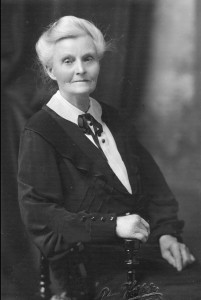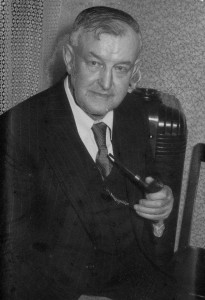Posts Tagged ‘ancestors’
Hurricane at Sea
We skirted a hurricane (known as a cyclone in the South Pacific) for the first several days after my husband Tony and I left Wellington, New Zealand, bound for New York on the “Johan von Oldenbarnevelt.” For most of that time I lay on my bunk, so seasick I wished I were dead just to get the misery over with. In a letter to parents I scrawled: “Mountainous heaps of water piling up all over the place, wind changing direction all day …Steady old JVO bobbing around like a cork. Thank goodness I have got my sea legs at last – after the first few days of utter misery in a very stuffy cabin. Am still on a largely dry bread and water diet – lost a terrific lot of weight. But have been reading Women of New Zealand today and decided that my lot is not too bad after all. What those women had to put up with on their voyage out to NZ makes me feel rather ashamed of myself.”
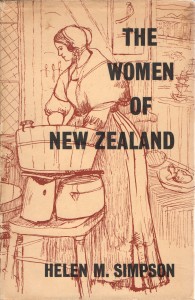 The book I referred to, The Women of New Zealand by Helen M. Simpson, had been a parting gift from my parents, who had come to Wellington to see us off. First published in 1940, it was a vivid description of the lives of pioneer women.
The book I referred to, The Women of New Zealand by Helen M. Simpson, had been a parting gift from my parents, who had come to Wellington to see us off. First published in 1940, it was a vivid description of the lives of pioneer women.
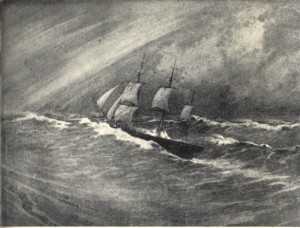
The Ship “Kenilworth” Outward Bound for New Zealand. An illustration in Helen M. Simpson’s The Women of New Zealand, it is a reproduction of a painting by J.C. Richmond, now in the possession of the National Art Gallery, Wellington.
An early chapter describes conditions on board the emigrant ships for the four- to six-month journey from the British Isles to New Zealand. Simpson comments: “Cramped quarters ashore are difficult enough to deal with; at sea, when with every lurch of the ship ‘all things animate and inanimate’ were hurled about, children and chairs in terrifying and noisy confusion …”
Our quarters on the JVO were certainly cramped. Our lower-deck cabin had two bunks and a tiny washbasin in a space so narrow we had to take turns getting dressed. Outside in the corridor, the airless heat was rank with smells from the nearby galley. But unlike those early emigrants, we didn’t have to cook for ourselves, or bring along our own cabin furnishings.
I think of my own ancestors who braved the outward journey. A hundred years before Tony and I walked up the JVO’s gangplank, my newly-married great-great grandparents, Bernard and Sarah Donnelly, set out from County Leitrim in Ireland to join hundreds of other Irish immigrants on the New Zealand goldfields. My paternal grandfather, Charles Dinsdale, emigrated from Yorkshire, England in the early 1900s. By then steam had replaced sail, but he would have set out for his new life half-way across the world with the same sense of adventure.
In her book, Simpson tells of a shipboard fire, when passengers & crew took to the lifeboats. A woman passenger wrote that, when told of the fire, ‘I folded up my knitting, put on my bonnet and shawl, and went up.’ Simpson comments: “So figuratively hundreds of other women folded up their knitting, and, putting on bonnets and shawls, quietly faced these and other perils, and all the acute discomforts of the long voyage to the new land where their hopes rested. Dangers and discomforts were accepted without fuss.”
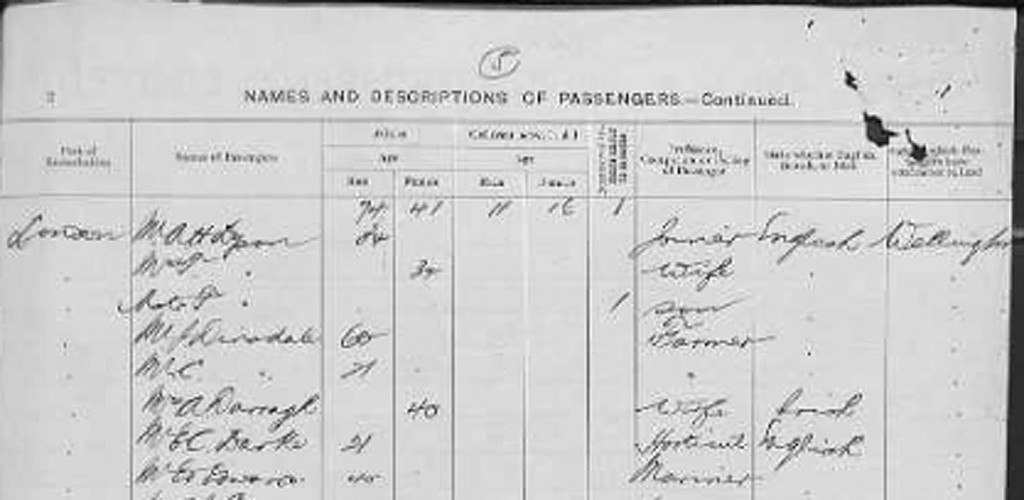
Passenger list for the SS “Corinthic” 1904. The 21-year-old C. Dinsdale (fifth name down) is probably my grandfather. From https://familysearch.org
Simpson’s standard of appropriate behavior is typical of the New Zealand society I grew up in, where we were expected to just deal with whatever hardships came our way. This is why I felt so chagrined for feeling sorry for myself.
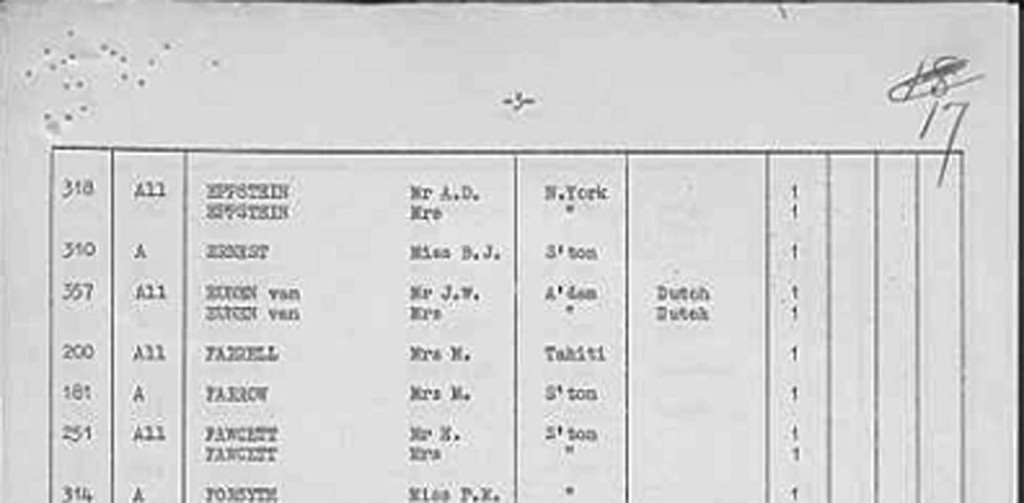
Passenger list for the “Johan van Oldenbarnevelt” 1962. Our names are at the top of the page. From https://familysearch.org
Maureen is exploring the contents of an old black filing cabinet in her attic, which contains 55 years of her writing notes and memorabilia.
